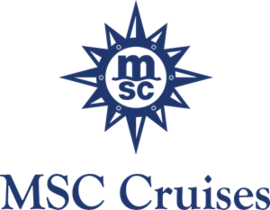Top 10 Eco-Friendly Cruise Lines
It doesn’t matter how you holiday, from staycations to long haul flights and from cruising to taking the train- everything has an impact, but some are of course better than others.
The cruise industry has been sadly slow to react to this and despite sailing in some of the most beautiful and un-spoilt parts of the world, the industry has turned a blind eye to their impact on been in the regions that they cruise.
Thankfully, this is starting to change and whilst some companies are still hiding their head in the sand, ironic for a cruise company, others are showing just what can be done to keep the places we love to visit the same as what we experience for next generation of cruisers.
Some lines will do the very basics of removing single-use plastics and undertaking recycling onboard others go all out both in the service that they offer to the dirty side of the industry where the majors gains can be made with wastewater and fuel changes.
In this list, we take a look at which cruise lines are leading the change to sustainable and eco-friendly cruising.
Our Top 10 Eco-Friendly Cruise Lines

There modern expedition ships, including the Roald Amundsen, use hybrid-power, green technology and innovation hull design to use 20% less carbon emission than other similar sized ships.
They also became the first expedition line to ban single-use plastics and they are even looking to develop fuel from organic waste.

They have won many awards around the world for their green credentials and offer a great alternative to large fuel burning ships.

There ships purify wastewater and turn it into drinking water, heat from their ships engines is turned into clean energy, use catalytic reduction systems to decrease nitrogen oxide emissions and they clean their exhaust gases to decrease sulphur oxide emissions.
Onboard, single use plastics are banned and with no buffet, food waste is reduced.

Their ships use advanced water and waste management systems, they only use energy efficient appliances and maximise the use of eco-friendly products and locally sourced food onboard.
By using a special bow design, the line not only reduce their fuel usage but also their vibrations, which is great for a line usually sailing in the remote water of the Arctic and Antarctica.
The onboard experience also includes reduced singles use plastics, naming their decks after famous ocean preservationists and having 1 day on each sailing when no seafood is served.


That started with the design of the ships that include an innovative hull design whilst things such as smart heating and air con systems, advanced wastewater treatment, ship to shore power and utilising high-efficiency appliances and lighting.
They also have no single use plastics, use hybrid power alongside catalytic reduction technology and they work with the MSC Foundation to promote sustainable travel.
Their next generation of Explora ships are also set to be hydrogen powered.

Amongst the measure the line is taking are no single use plastic bottles, minimising paper waste, fixed pitch propellers on bow thrusters to reduce energy consumption, “ultra-low friction” coating to hull, reusing coffee mugs and desalinated water by using reverse osmosis.

They will also use LNG and batteries for power at sea and will incorporate advance waste processing systems onboard.

This is one where you will need to ignore much of the line and focus on their latest ships, but the efforts the Swiss headquartered, Italian based line have gone to with their latest ships is well worth a place on this list.
Newer ships, such as the MSC Euribia are powered by LNG, use onboard power saving technology, have oxide fuel cells, operate an advanced wastewater system, separate materials for recycling onboard and use a hull design to lower drag.

Whilst not a cruise line themselves, we have added them to this list because of their new Excellence class of ships which have been put into service for lines such as AIDA, P&O, Costa and the Carnival cruise line.
Starting with the AIDAnova when she became the first LNG powered cruise ship in 2018, this new class of ship has proven that even the biggest ships in the world can adapt and use more sustainable fuel.



